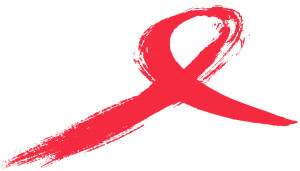(first published in 2004)
The last weekend of November, a few days shy of World AIDS Day, the Coalition
of Quebec non profit organisations
for the fight against Aids (COCQ-Sida) organised
in Montreal the first symposium for people with HIV.
The 376 participants, who came from everywhere
in Quebec, attended eight workshops
on the theme of medical issues and six on the theme
of fundamental rights. The workshops included issues such as the aspects of end-of-life care, the palliative care units and the support service for patients relatives, as well as the question of euthanasia and assisted suicide.
It has been clearly demonstrated that despite the existence of triple therapy, the life of people living with HIV is far from ordinary.
People infected with HIV have to cope with several HIV complications in their everyday lives: when they want to find a job, for insurance, and even to get treated. “Several doctors are still afraid of AIDS and they refuse to look after us. They will consistently refer us to the E.R., to avoid examining us, explains Léo-paul, who has been HIV positive for 18 years. ”
HIV treatment, which requires the absorption of about thirty pills per day, causes a variety of very serious side effects in the majority of patients.
The triple therapy causes many disorders like diabetes, an increase in cholesterol as well as body deformities, all sources of great despair.
A less known side effect, and yet very common, is lipodystrophy. Since the medications alter dramatically the metabolism of fat, it becomes either virtually unexistant in some people, giving them a skeletal appearance, or it causes development of masses of fat on the inside of the body or to the back of the neck, causing breathing difficulties. Of about 4,000 people on antiretroviral therapy in Quebec, nearly 50 per cent will develop this disease. Some, very severly.
Most of the patients with lipodystrophy are too weak
to fight for their rights. But some have managed to create an association. “There is unfortunately a huge protection shield towards the pharmaceutical companies, explains Martin, spokesman for the committee Lipo-Action . We do not want to alarm any of the patients, we demand simply our right to proper care. If the doctors were to do plasma dosage before prescribing the medicine, there would still be side effects but much less important ones,” he adds.
Clinical trials are made on a group of men, which explains that the secondary effects are even more serious among women. “There are very few doctors who treat HIV and, unfortunately, patients don’t succeed in having proper follow-up. The consequences are serious.
On 186 patients victims of lipodystrophy, 15% of them have admitted to sporadically stopping the treatment. We must act as quickly as possible. For now more than 6 years, we are aware
of the severe cases of lipodystrophy and nothing has been done yet,” he adds.
This problem is ignored by the health care system, and health care is becoming very expensive, several thousands of dollars for a treatment of injections, illegal in Canada, which eliminate the hollow cheecks effect for over a year. “Some are selling their home to pay
for a treatment, people are loosing their job or are demoted because of their appearance.
There is an urgent need to do research. We want to have access to treatments with less dramatic side effects. If we are forced to hide from the world, we will not heal”, explains Lyse Pineault, general director of the COCQ-aids. Léo-Paul hasn’t been able to work for 10 years now :
“My therapy gives me cardiac disorders, diabetes and digestive problems, which prevent me from working for more than three hours straight. I still do volunteer work for various associations.
I sometimes wonder if my doctor has prolonged my life or my death. “


